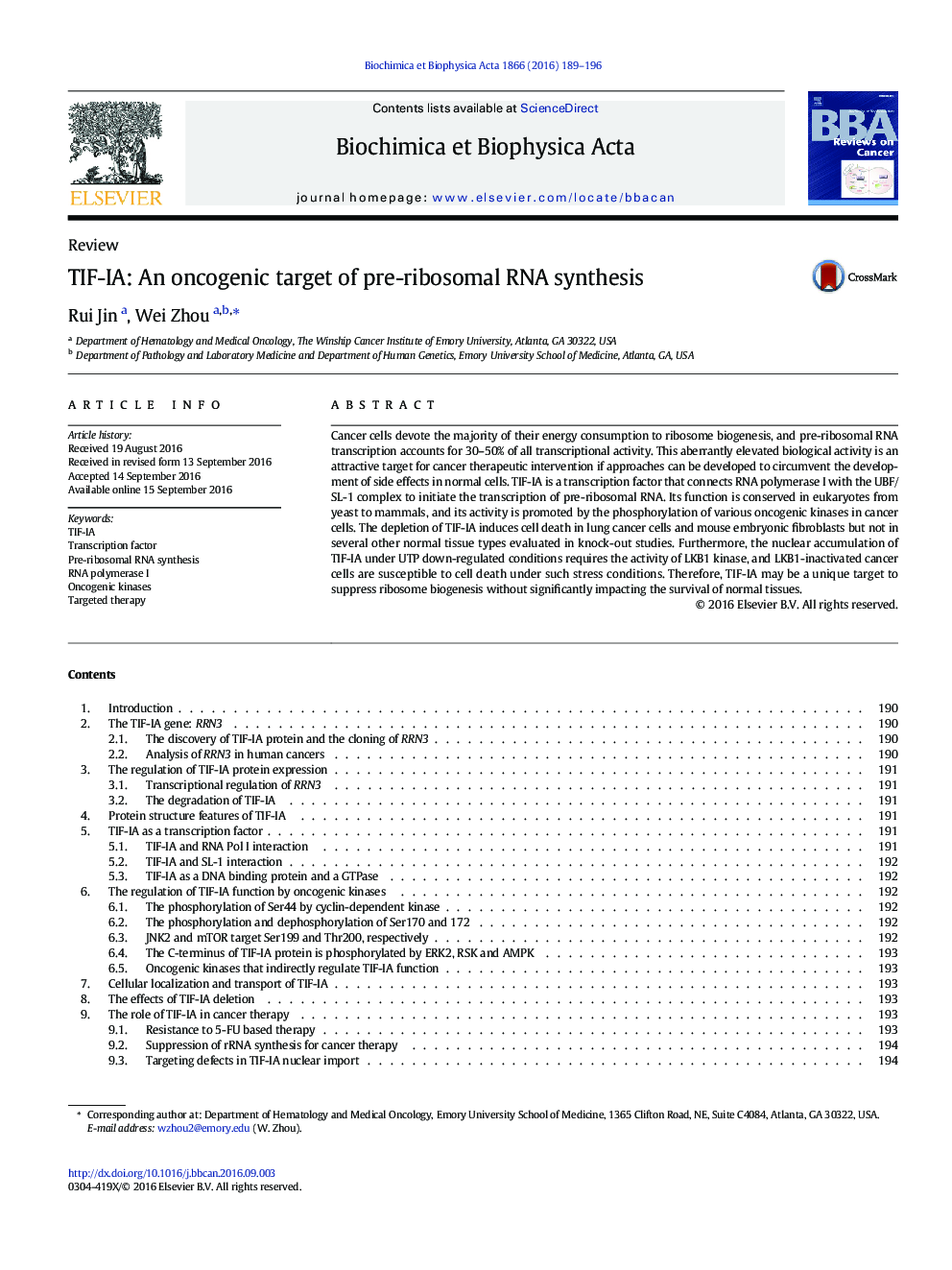| Article ID | Journal | Published Year | Pages | File Type |
|---|---|---|---|---|
| 6481810 | Biochimica et Biophysica Acta (BBA) - Reviews on Cancer | 2016 | 8 Pages |
Cancer cells devote the majority of their energy consumption to ribosome biogenesis, and pre-ribosomal RNA transcription accounts for 30-50% of all transcriptional activity. This aberrantly elevated biological activity is an attractive target for cancer therapeutic intervention if approaches can be developed to circumvent the development of side effects in normal cells. TIF-IA is a transcription factor that connects RNA polymerase I with the UBF/SL-1 complex to initiate the transcription of pre-ribosomal RNA. Its function is conserved in eukaryotes from yeast to mammals, and its activity is promoted by the phosphorylation of various oncogenic kinases in cancer cells. The depletion of TIF-IA induces cell death in lung cancer cells and mouse embryonic fibroblasts but not in several other normal tissue types evaluated in knock-out studies. Furthermore, the nuclear accumulation of TIF-IA under UTP down-regulated conditions requires the activity of LKB1 kinase, and LKB1-inactivated cancer cells are susceptible to cell death under such stress conditions. Therefore, TIF-IA may be a unique target to suppress ribosome biogenesis without significantly impacting the survival of normal tissues.
